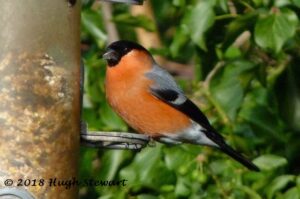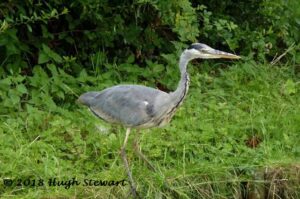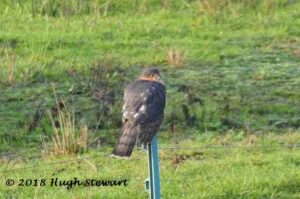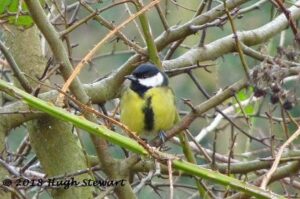Hugh’s News – December 2018
As we pass slowly into winter, it is perhaps a good time to reflect a little on the summer just passed. I am still waiting for the Breeding Birds Survey results to see how birds faired across the country as a whole. There were many contradictory stories of the effect of the long, cold spring on species like Swallows and Swifts, but what a great summer is was when it eventually arrived! So the data will be very interesting – I will write about this further when the data are released.
The breeding figures from the RSPB Dee Estuary team for key species are encouraging though. Lapwing fledged 115 chicks, Redshank at least 45, and Avocets 67. Excellent numbers! A pair of Marsh Harriers raised 3 young at Neston Reed Bed, a first for the estuary. After coming back from the brink of extinction as a British breeding bird, with only one pair nesting in 1971, their population has grown rapidly.
I wonder what the next new species to breed on Wirral will be? Bearded Tits, still present but elusive at Burton Mere Wetlands RSPB, would be a good bet. Actually Bearded Tits did breed in 2003 and 2004, also at Neston Reed Bed, but not before or since. How about Bittern, with 2 birds being seen regularly on the salt marsh over this last month? Or maybe Red Kite, as I have mentioned before with their increasingly frequent sightings from the expanding Welsh population. I would be happy with any one of these species breeding on Wirral.
As you are possibly aware already, the RSPB’s annual Big Garden Birdwatch will be held from 26th – 27th January 2019. To maximise your own garden counts, I suggest that you should start feeding your garden foods now, if you have not done so already. With the falling temperatures, birds will become increasingly reliant on garden feeders. By getting them used to your avian restaurant now, numbers will hopefully build up over the next few weeks and you will have a more productive time. It also helps enormously if the weather is cold on the day of your count, as birds will be even more desperate to refuel!
If I don’t see you at the Field Meeting on Saturday 15th December, I hope you all have a great Christmas, and I will see you again in the New Year. Thank you for your continued support of the Club and its programme.
Hugh Stewart



